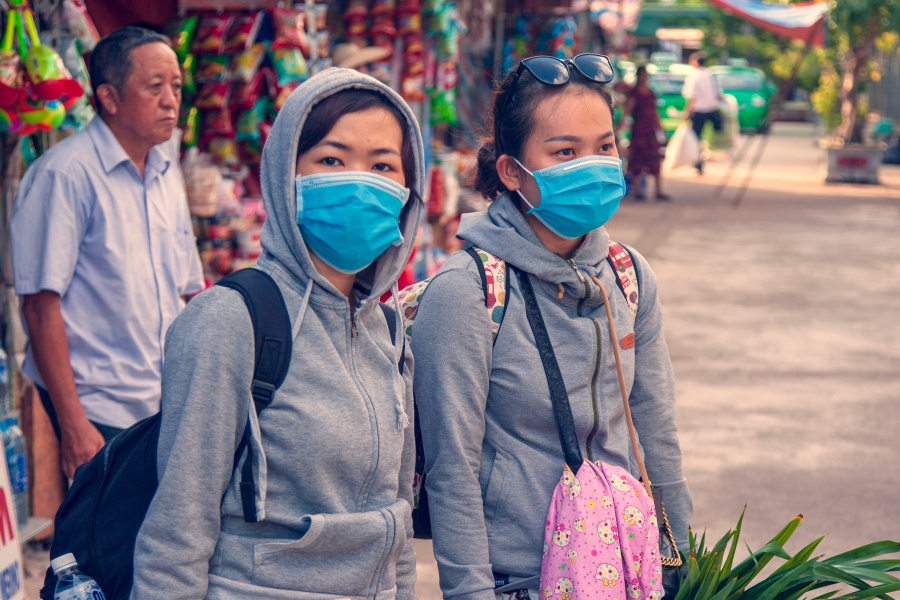Coronavirus is spreading well and far across the region, and businesses are scrambling to manage the crisis – both internally and externally. In China, we’ve seen giant brands – such as Starbucks, Google and Ikea – temporarily shut down operations for fear of employee safety. Worse still, misinformation is rife.
We ask PR heads in the region about how brands should handle their comms during this tricky period.
1. How should brands (especially those operating in China) be handling the crisis? Should a complete shutdown of operations be encouraged?
Lydia Lee, president, Weber Shandwick China:

For organisations navigating potential health risks, the wellbeing of employees and their families should always be of utmost importance. In terms of whether operations need to be shut down, it’s a decision best made in consultation with company stakeholders (including employees). Generally, it is always best for organisations to look toward the government for guidance based on their rules and recommendations.
Antoine Calendrier, head of reputation, North Asia, Edelman Asia Pacific:

From an internal standpoint, the key is to maintain transparency and frequent communications with employees. We are in an era of information overload and fake news, which makes it all the more important for companies to position themselves as a credible source of information that their staff can rely on.
Any consideration of a potential shutdown of business operations should take into account four key factors (in order of priority):
1. Assessing the health risk – This is dependent on the industry and business in question. Companies need to carefully assess if employees are exposed or at risk of the coronavirus as a result of carrying out their jobs.
2. Exploring temporary or alternative ways of working – For some companies, implementing a temporary work-from-home policy can keep employees safe and keep the lights on.
3. Reviewing business impact – Management needs to consider the financial and operational impact of temporary business closure. In the event of business closure, organisations need to ensure they have robust business continuity plans, that stakeholders are aware and know how they will be applied.
4. Listening to the reaction on the ground – It is imperative companies are actively keeping up to date with real time news and updates of the situation on the ground, and that they act accordingly. Brands should take the appropriate actions to avoid being seen as irresponsible or too slow to respond. To prevent this, they must continuously monitor the situation and regularly engage with their internal and external stakeholders so that they are prepared to take actions when and where required.
Specific to the China market, there are two key factors to keep in mind:
1. China is one of the most connected societies in the world, especially with information-sharing platforms such as WeChat and Weibo. These social media platforms are often seen to be one of the most credible first-hand sources of information. In this situation, when making a decision, it is important for companies operating in China to take into consideration what is being reported on social media in addition to what is being reported by traditional news channels.
2. Scarcity is an emotional trigger. China has gone through a lot of change in the past decade. This has had an impact on how its citizens react in times of crisis and scarcity, in which most people over-respond and over-prepare in uncertain times. Multiply this by the large population and the sense of panic on the ground is amplified exponentially. Companies need to take this into account in all aspects of their business operations.
Priyanka Bajpai, regional head, Southeast Asia, SPAG Group:

Authentic education about the crisis is not only critical to control the situation, it is very important that brands ensure that the workforce is aware of the proactive and transparent steps taken by their company. Businesses should act quickly to ensure business continuity is maintained while protecting the workforce. Organisations should include newer additions such as flexible work arrangements and remote working. In an era where technology is at its peak, we should make the best use of it through inclusions of such working arrangements to contain the risks to the workforce and the economy.
Prince Zhang, CEO, Greater China, Ketchum:

Employee safety is always a top priority to enterprises. They should make timely communications of safety guidance and related actions internally that adhere to municipal government policies. It’s important to keep the messages simple and factual to avoid any unnecessary panic. They should also collect basic information of employee travel plans during this special period with respect to privacy. Necessary remote support is needed to employees who are infected or in special condition. Any business decisions would be made with the balance of economic impacts. Therefore I don’t suggest a complete shutdown of operations.
Rikki Jones, regional managing director, APAC, GCI Health:

Companies operating in China first and foremost have a responsibility to demonstrate that the safety of their employees comes first, and many brands have put robust measures in place – some with great financial consequence. The need to communicate externally still goes on, with even greater necessity, both on how to engage with businesses at this time and to extend safety concern to consumers and other customers, while being sensitive to community needs and putting a hold on promotional messages.
2. How should brands communicate with their consumers or customers during this crisis?
Lee:
During times of crisis or complexity, strong company culture and a defined sense of brand purpose can be invaluable in helping a brand navigate these types of decisions. Communications tactics should be shaped around the priorities of the business and its stakeholders.
But, it’s essential to be mindful of how those priorities align with a company’s brand identity and values. If a company acts against its stated or embodied values by prioritising profit or publicity at the wrong time, it may be seen as opportunistic or callous. This is why most brands are refraining from commenting or coming forward with donations (e.g. fundraising, supplies). It’s important to be mindful of others and continue to reflect your company’s values.
Regardless of how a brand chooses to communicate, it is essential to remember to think on a global scale and embrace an inclusive mindset. Disease, after all, doesn’t discriminate. Brands, especially global enterprises, need to ensure consistent and timely communications with, not just their local consumers, but their teams around the world to ensure all of their stakeholders, employees and customers have the information they need to feel safe and supported.
Calendrier:
During a crisis, it is also an opportunity for brands to step up and contribute to society through action, being genuine in their support efforts and without any ulterior motives. For example, brands like LVMH, Melco, Kering and Swarovski have donated millions of dollars to the Red Cross as they work at the frontlines in Wuhan. Another example is Johns Hopkins University, who has used its expertise to create a real-time, interactive map that tracks the coronavirus and serves as a tool to inform health officials and the public.
Bajpai:
Brands in today’s world have a major role & responsibility to play, especially in times of public health challenges like the current nCoV crisis. We use a 3E approach:
Empathy: It asks brands to have tonality and line of communications that is not only understanding, but cautious with optimism and should reflect trust in future and the ability for everyone to work together and find solutions.
Engage: It should engage with its stakeholders, both internal and external, inspiring confidence in the brand through their actions as well as offering support in all its capacity.
Educate: To use multiple channels to educate its stakeholders on the criticality of the situation, steps taken to manage the crisis while also educating them on the actions taken by the brand to support its stakeholders.
The 3E approach also promotes brands to provide support to organisations like the government and WHO by amplifying correct information and curbing fake news to be spread within the ecosystem.
Zhang:
If you are a big enterprise that makes donations to fight coronavirus, you should make a precise external announcement with key information around the exact amount of donations, the recipient organisations, the purpose of donations, logistics etc. Brands should avoid any marketing around the donations. If your service or products are highly relevant to this coronavirus crisis, it might be considerable to do some knowledge sharing about prevention of virus transmission with a lowlight of your own brand.
Jones:
In times of such an emergency, there’s always the opportunity for strong CSR to be exercised, and there’s already been a number of big (and small) brands who have committed funds to China’s fight against the virus – L’Oréal and Estée Lauder are just two beauty examples of brands who quickly rose to the occasion with committed funds.
|
This post is filed under... Sounding Board: APAC experts speak on marketing and comms issues |
3. What can brands do to avoid the spread of misinformation and fake news during this crisis?
Calendrier:
Companies should have a multi-disciplinary and dedicated team to respond to crises and be the central point for information gathering and distribution. In regards to the coronavirus, it is advisable the team includes experts in human resources, communications, executive leadership, operations (such as maintenance), public affairs and health care advisors. Having the right people at the table will ensure companies have a wholistic view of the situation, thereby being well-informed to make the best business decisions and communicate with employees.
Bajpai:
Businesses must be equipped to defend and counter. While fake news can damage the ability to distinguish between veracity and fabrication, enterprises will need to be innovators that detect, expose and destroy deliberate disinformation channels and content. Companies must begin to factor reality-distortion techniques into their crisis-scenario planning and to prepare and equip executives to communicate facts quickly and correct fabrication before they spread.
Zhang:
Brands should only reference authorised information sourced from government or health organisations. All communications should be simple, transparent and fact-based. We should prevent releasing any uncertain interpretations which might cause potential speculations, loss of trust and community panic.
Jones:
The brands who continue to communicate factually and with empathy at this time have the chance to resurface from the crisis with deeper consumer and customer connection, however misinformation at times like this is a public health concern and it’s critical that any attempt to join the public discussion keeps that fact central.
Sign up for our FREE weekly PRWeek Asia bulletin. Register here. |








